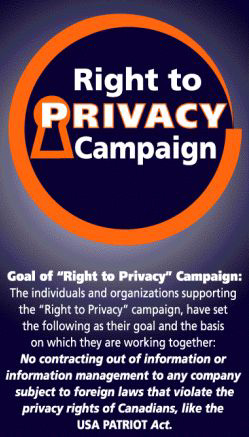
|
MyDoom Worm Variant Causes Internet Storm
A pesky new variant of the MyDoom worm — dubbed MyDoom.m or MyDoom.o — clogged e-mail accounts and crippled Internet search engines Monday with messages posing as either a returned e-mail notice or an alert from an IT administrator. MyDoom.m usually arrives as an executable programme file attachment that launches when you open your e-mail.
The newest variant of the MyDoom worm then sets about to search your address book for e-mail domains (e.g. @telus.net), in the process launching an Internet search using various search engines (Google suffered a major attack). Once MyDoom has located additional e-mail addresses, it sends out a denial-of-service attack across the Web. Note to corporate workers: Have your morning coffee before opening your e-mail.
And Below, VanRamblings’ Newest Tech Tuesday Feature

As is the case every week, the security news just doesn’t stop. Microsoft’s Internet Explorer browser was practically on the 10 Most Wanted list as a bank robber, thanks to malicious code that uses advertising pop-ups to steal data from bank Web sites. Not surprisingly, VanRamblings will provide you with the information you need to know.

|
The Internet Explorer onslaught continued unabated this past week, and the message that IE is somewhat less than a safe browser seems to be getting through to an increasing number of Internet surfers. Maybe it’s the constant reports of vulnerabilities, culminating in last week’s news about pop-up ads that can actually harvest password and other data from bank Web sites. Either way, according to Google and C|NET, searches for browsers — most particularly Mozilla, and Firefox — dominated network traffic last week, providing evidence that Microsoft’s stranglehold on the browser market may be coming to an end.

|
Last week, Google announced that it had purchased Picasa, a company that makes software for organizing digital photos. Almost immediately, Google made the software available for free, resulting in a massive download of the programme by computer users worldwide. At first glance, the purchase seemed a tad puzzling. Picasa makes a desktop product; Google is a Web search engine. But Google would appear to have big plans for Picasa’s Hello peer-to-peer photo-sharing application, which already works seamlessly with Google’s Blogger Weblogging service. Google is also likely preparing to compete with Microsoft, which has already touted advanced image-search features in its upcoming Longhorn operating system.

|
Is KaZaA totally over? Although it’s too early to draw broad conclusions about KaZaA’s future, for some months now the search has been on for file-swapping alternatives that are less hassle than KaZaA. What pieces of software are emerging as the early favourites in the peer-to-peer sweepstakes? eDonkey and its cousin eMule (VanRamblings uses the latter) have gained a loyal following. BitTorrent is the alternative for the tech savvy. Over a period of six months, network management company CacheLogic found that KaZaA had slipped far behind rival BitTorrent, which accounted for 53 percent of actual peer-to-peer network traffic. And, arising Phoenix-like from the dead, WinMX, which has moved into a Top 10 position at Download.com.

|
Want more information on BitTorrent? Here’s the scoop: BitTorrent is peer-to-peer software that makes it easy to share huge files quickly and reliably. Remember, with earlier file-sharing networks, waiting behind 15 other people to download a file from some poor sap with a 384Kbps DSL upload pipe? BitTorrent avoids that bottleneck by splitting files into chunks and having people download different chunks from one another. Everyone downloads and uploads at the same time. Inevitably, people discovered that BitTorrent is a dandy tool for swapping movies and TV episodes. Beware, though: The entertainment industry is watching; BitTorrent also exposes your IP address.
Question of the Week
I accidentally unchecked the ‘Always ask’ option in the File Download dialogue box when I downloaded a .zip file. Now I’m no longer asked about whether I want a downloaded .zip file opened. How do I get that choice back? — Submitted by: Jonathan Kwan, Edmonton, Alberta
As always, we’ll assume that you’re using Windows XP. Here goes, then: In Windows Explorer, select Tools / Folder Options. Click the File Types tab. In the ‘Registered file types’ list, select the appropriate type (zip, or WinZip File, in your case). Click the Advanced button. Check the Confirm open after download box, and click OK.
![]()







